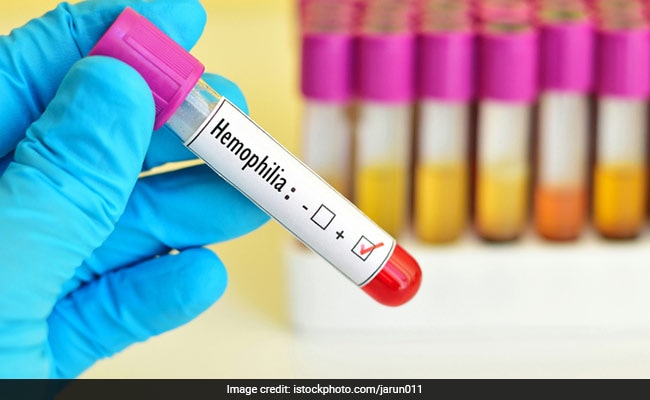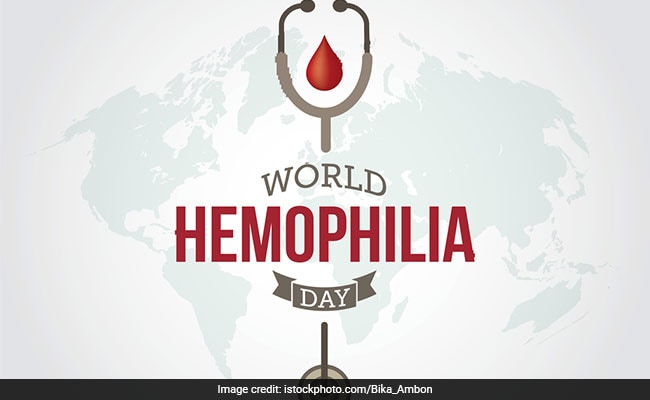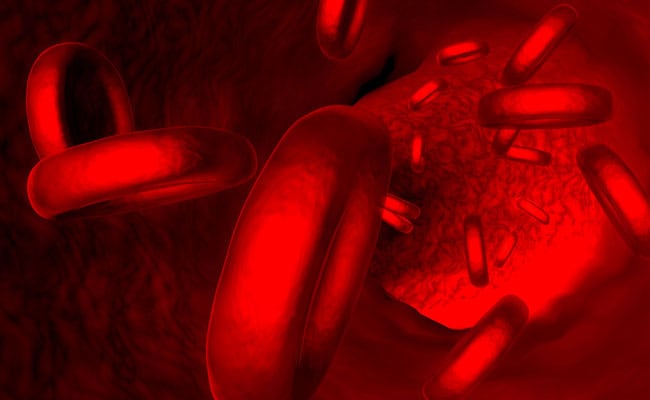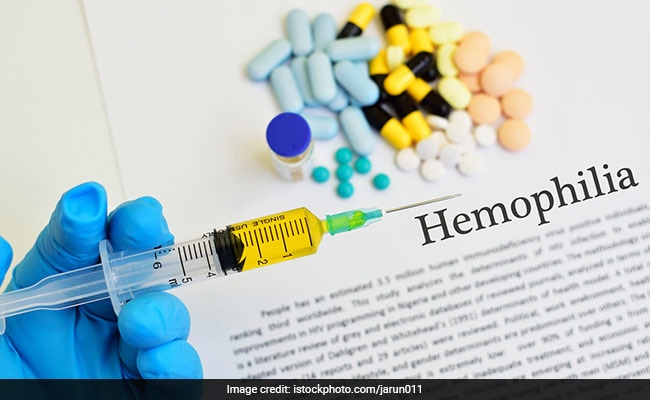World Hemophilia Day 2018: Read all about the bleeding disorder which is caused be deficiency of clotting factor in the blood.

World Hemophilia Day 2018: April 17 is observed as World Hemophilia Day
HIGHLIGHTS
- A person with hemophilia lacks enough clotting factors
- Males are mostly affected by Hemophilia
- Symptoms of hemophilia vary from person to person
Every year, April 17 is observed as World Hemophilia Day. Hemophilia is a bleeding disorder in which the blood doesn't clot in the usual way. While Hemophilia A is caused by deficiency of clotting Factor VIII, Hemophilia B is caused by deficiency of Factor IX. Hemophilia A and B are both inherited in X-linked recessive pattern of genetics. Thus, males are most commonly affected by Hemophilia A and B, and females are usually carriers of the disease. The severity of the disease, however, varies from individual to individual. This World Hemophilia Day, lets spread more awareness about this disease and how it can be cured.
Hemophilia makes a person bleed from any site in the body. The condition can damage joints because of repeated episodes of bleeding.

World Hemophilia Day 2018: April 17 is observed as World Hemophilia Day
Photo Credit: iStock
A person with hemophilia lacks enough blood-clotting proteins or clotting factors. Small cuts don't cause much of a hassle among people with haemophilia. However, it is the deep bleeding inside the body which is a major cause of concern. This is especially if the bleeding happens in ankles, knees and elbows. Internal bleeding because of haemophilia can be life-threatening as it can cause damage to organs and tissues.
Also read: Can A Blood Clot Kill You?
Hemophilia symptoms
Depending on the clotting factors, signs and symptoms of haemophilia vary from person to person. Among people whose clotting factor is only mildly reduced, the bleeding might occur only after a surgery or trauma. But in case of severe deficiency of clotting factor, the bleeding is severe and spontaneous.
Spontaneous bleeding is characterised by excessive bleeding from cuts and injuries, or excessive bleeding after a surgery or a dental operation. If a person has numerous large and deep bruises, it might be because of spontaneous bleeding. People with spontaneous bleeding also experience unusual bleeding after vaccinations, pain and swelling in joints, blood in urine and/or stool, sudden nose bleeding and unexplained irritability in infants.
Also read: Why It Is Important To Know Your Partner's Blood Type Before Getting Married
Causes for hemophilia
While most forms of hemophilia are inherited, about 30% of them happen to people without any family history of the disorder. These people suffer from the condition because of an unexpected change or spontaneous mutation in the genes.
A rare form of hemophilia is known as acquired hemophilia, in which a person clotting factors in the blood are attacked by a person's immune system. This condition can be associated with multiple sclerosis, autoimmune conditions and pregnancy.

World Hemophilia Day 2018: Hemophilia can cause bleeding in the brain
Photo Credit: iStock
Bleeding in the brain
People with severe hemphilia might experience bleeding in the brain with a slight bump in the head. Symptoms for bleeding in the brain include severe and prolonged headaches, repeated vomiting, lethargy, weakness and convulsions.
Inheritance of hemophilia
Hemophilia is known to be passed from mothers to son through one of mother's genes. Most women are simply carriers and experience no symptoms of hemophilia. However, some carriers can experience symptoms of bleeding in case their clotting factors are reduced mildly.

World Hemophilia Day 2018: Hemophilia is more common in males
Photo Credit: iStock
When to seek treatment
In case you witness symptoms of bleeding in the brain, an injury in which the bleeding won't stop or swollen joints that are extremely hot and painful, you need to seek treatment for hemophilia.
Also read: What Do High TLC And DLC Levels On A Blood Test Report Mean?
Treatment of hemophilia
Replacement of the specific clotting factor is the main treatment of hemophilia. This replacement therapy helps in stopping the bleeding episode which is in progress. The clotting factor can be replaced through donated blood or recombinant clotting factors which aren't made from human blood.
1. Physical therapy
A physical therapy can help in easing symptoms if there has been damage to joints because of internal bleeding. Severe damage to joints may need treatment through surgery.
2. Clot-preserving medications
These medicines help in preventing breakdown of blood clots.
3. Desmopressin
This treatment is used in case of milk hemophilia. Desmopressin is a hormone which can stimulate your body to release more clotting factors. The hormone is injected in the body through a vein or is provided as a nasal spray.
4. Fibrin sealants
These are medicines which are applied directly on the wounds in order to promote blood clotting and healing. This kind of treatment is helpful in dental therapy.
5. First aid
For minor cuts, using bandages and pressure can take care of the bleeding. Ice pack can be used to treat bleeding beneath the skin. To reduce bleeding in the mouth, you can use ice pops.
6. Vaccinations
Immunisation against hepatitis A and B can he taken in order prevent symptoms of hemophilia.
Disclaimer: This content including advice provides generic information only. It is in no way a substitute for qualified medical opinion. Always consult a specialist or your own doctor for more information. NDTV does not claim responsibility for this information.
DoctorNDTV is the one stop site for all your health needs providing the most credible health information, health news and tips with expert advice on healthy living, diet plans, informative videos etc. You can get the most relevant and accurate info you need about health problems like diabetes, cancer, pregnancy, HIV and AIDS, weight loss and many other lifestyle diseases. We have a panel of over 350 experts who help us develop content by giving their valuable inputs and bringing to us the latest in the world of healthcare.














